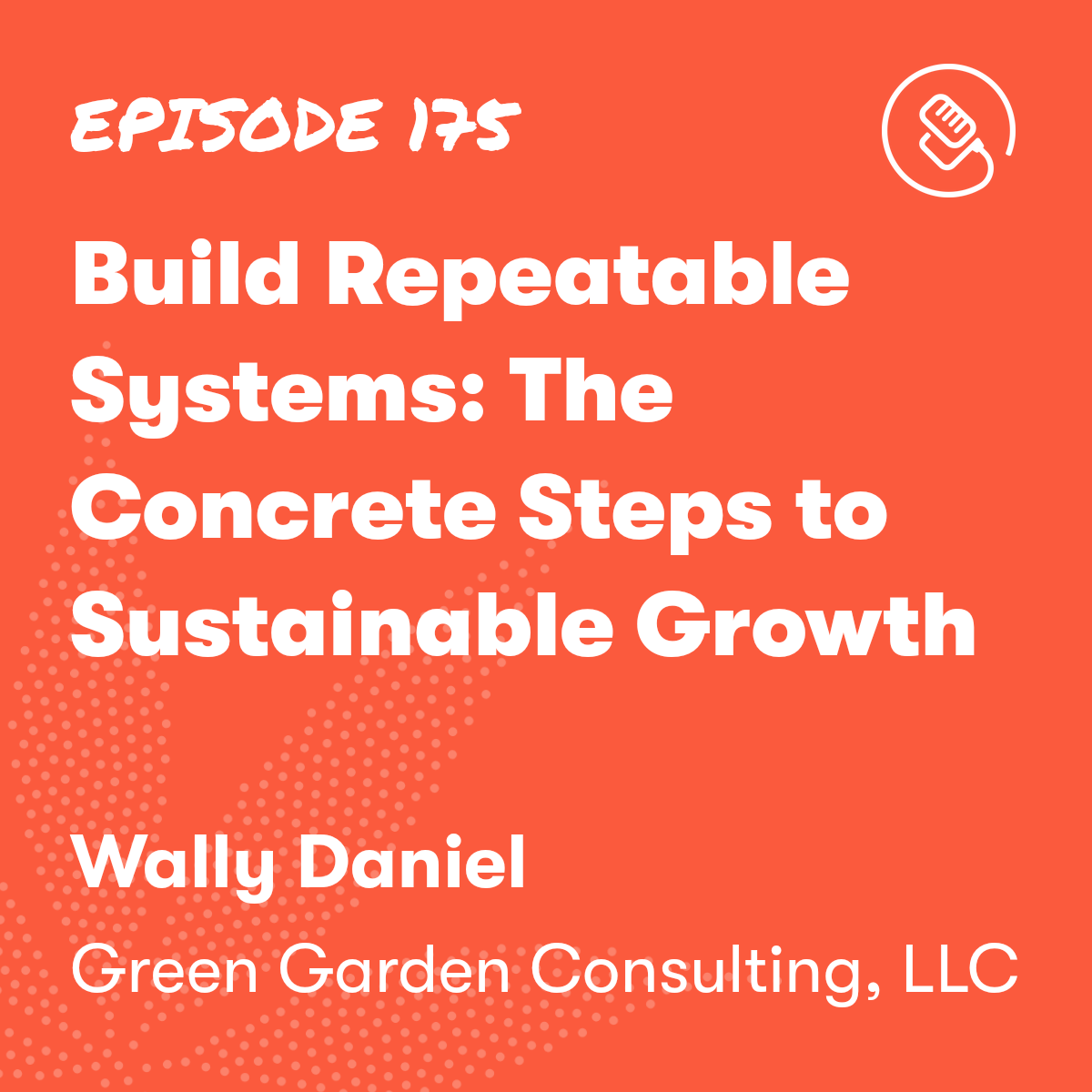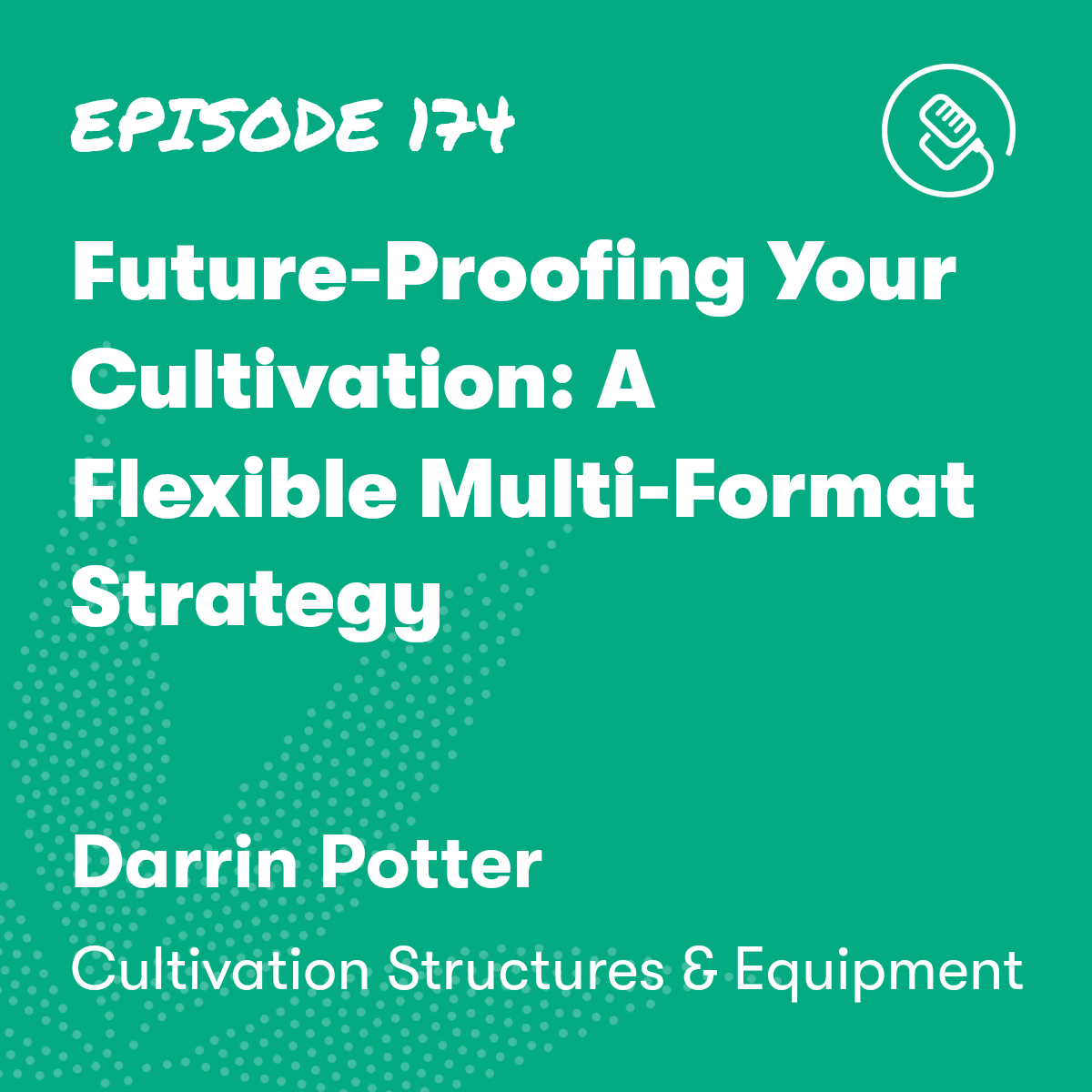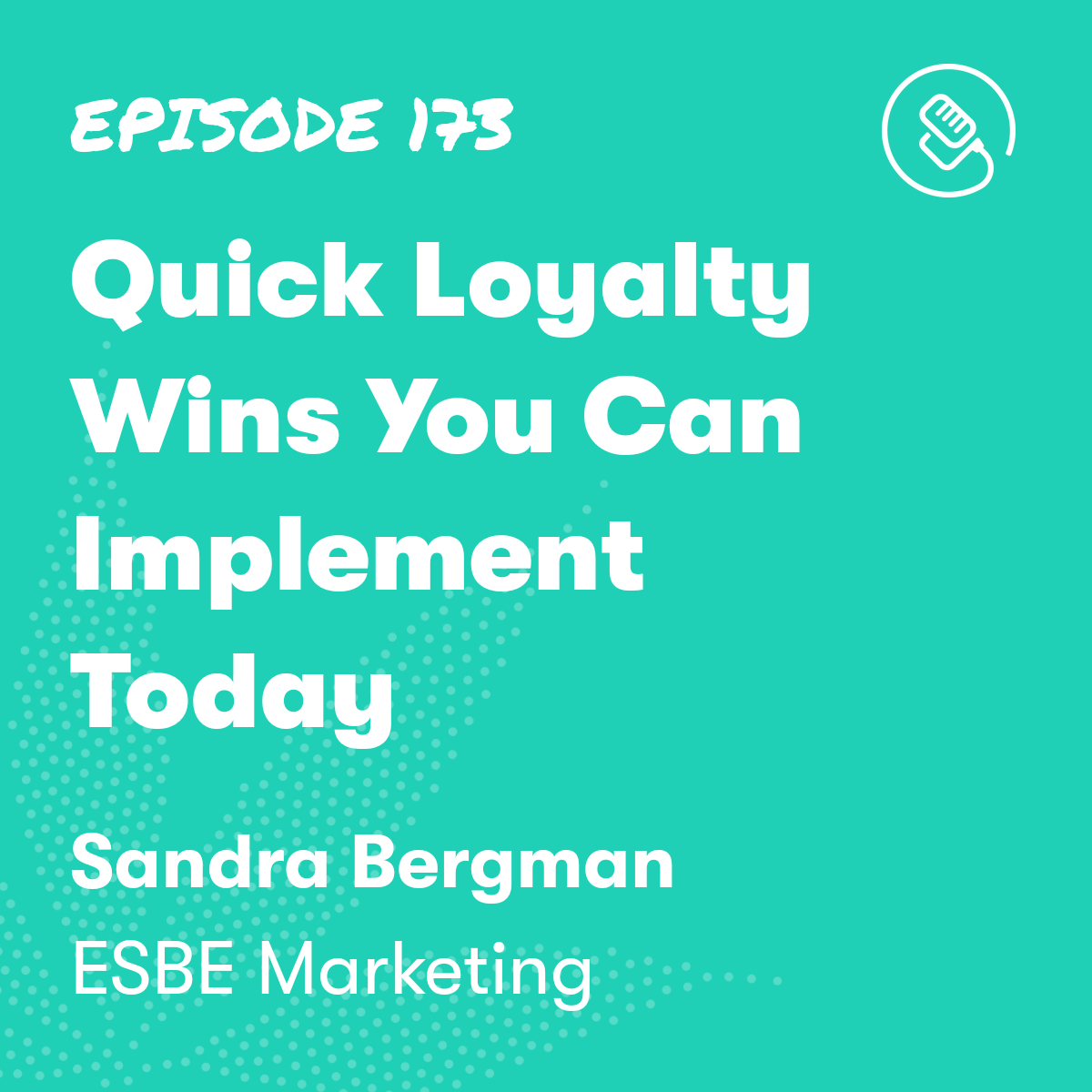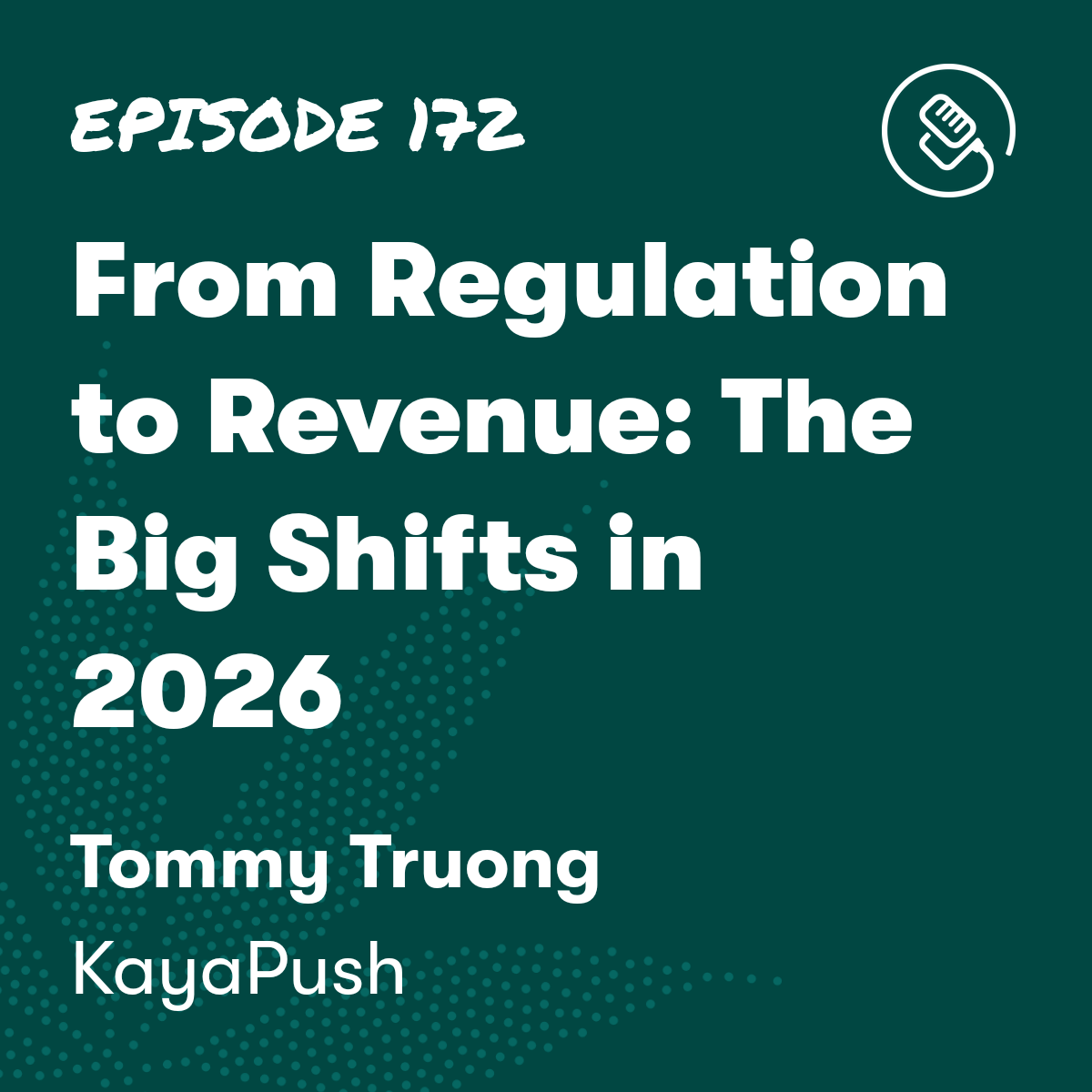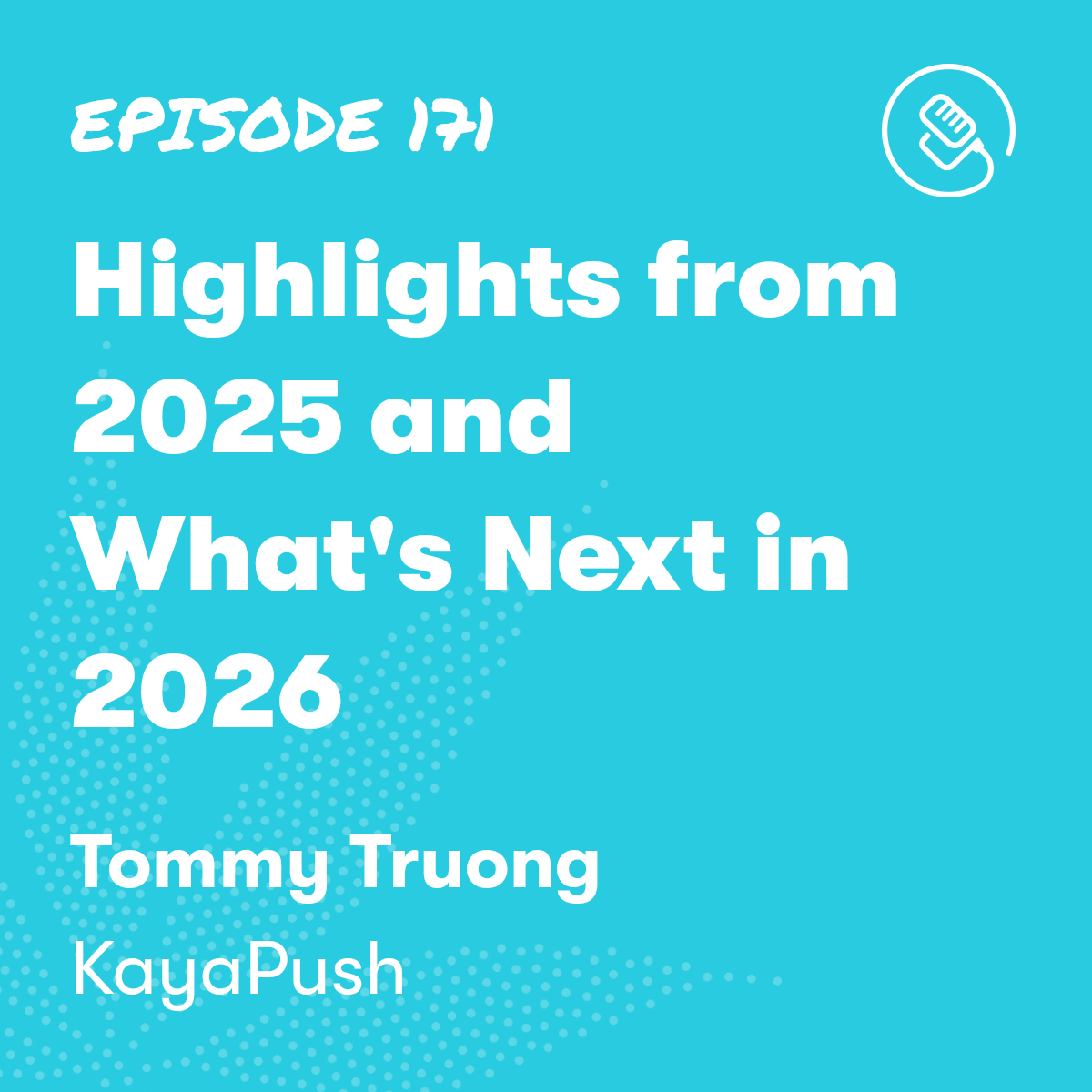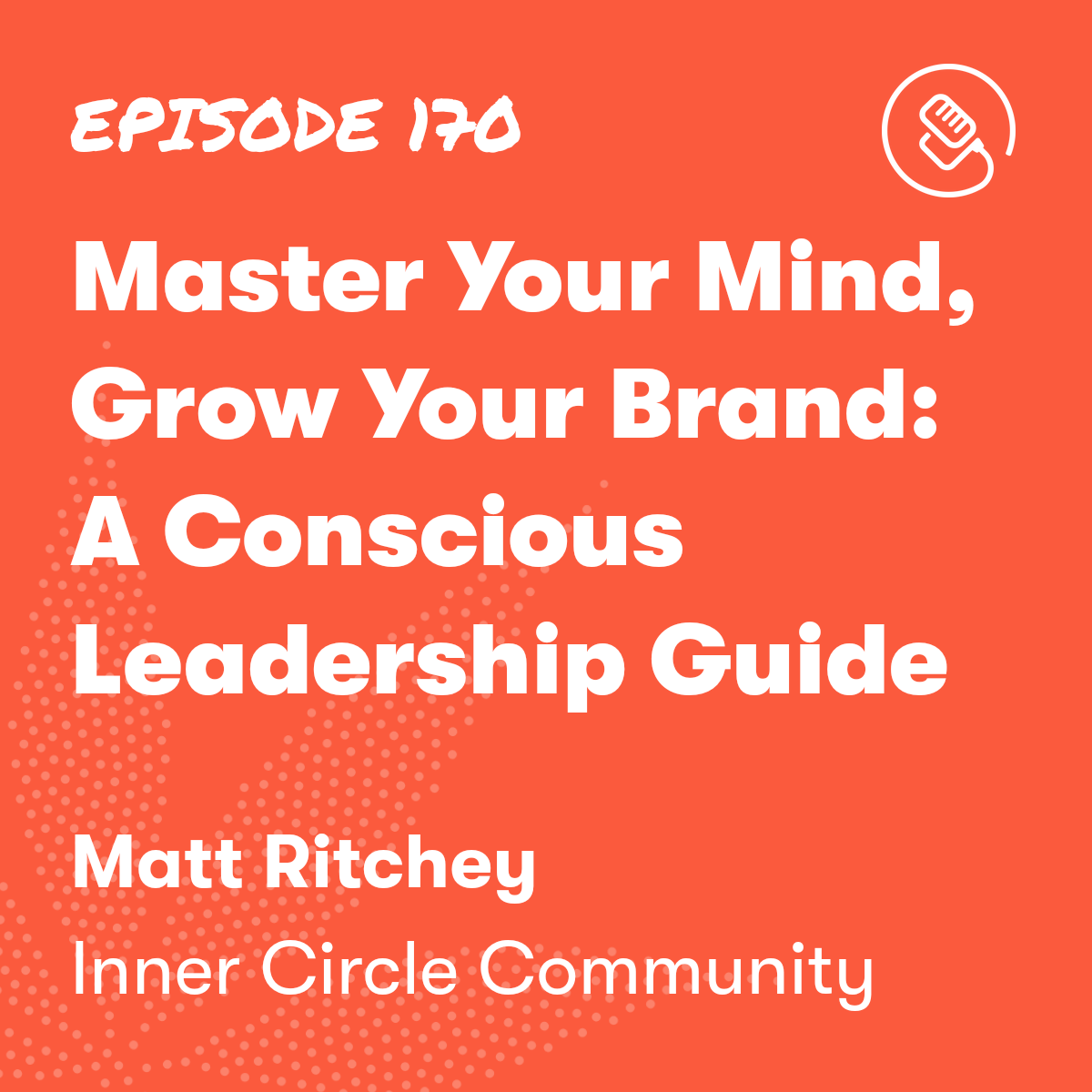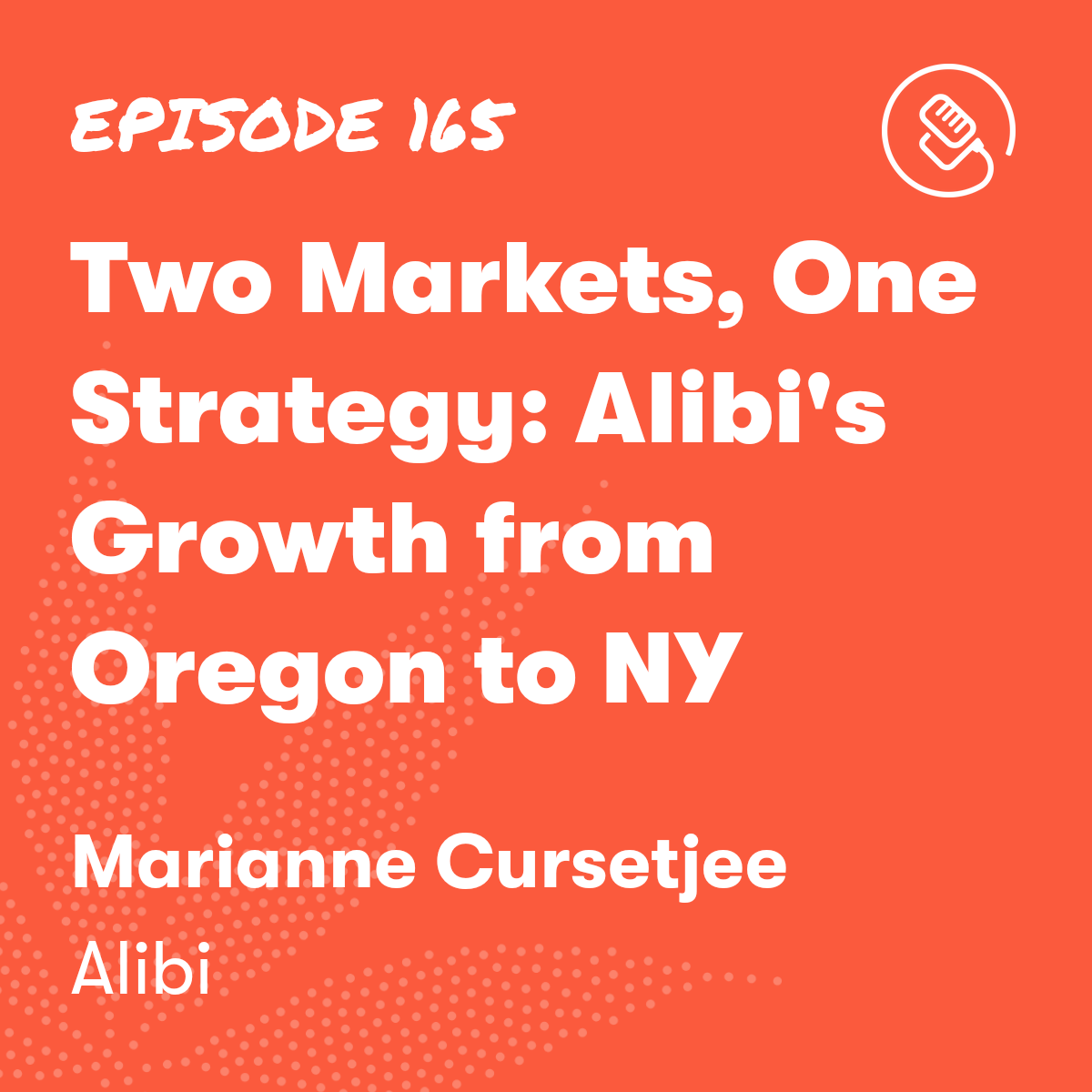

Transform Your Cannabis Business: Pearls from Jamie Pearson
Episode Description

Episode Transcript
Jamie Pearson: [00:00:00] And what I realize now as a consultant is it's easy for me outside looking in to see where the resistance, some resistance Jeff Bezos is saying that conflict is necessary. Some of it is counterproductive. You all need to be moving the rock in the same direction. And if you've got somebody pushing the rock from this direction, For whatever reason, you got to be able to recognize it, be slow to hire, quick to fire, because sometimes that person just, it isn't a good fit for your organization, or they're in the wrong seat, and maybe they'd be better off in a different seat.
Intro: Welcome to the KayaKast, the podcast for cannabis businesses looking to launch, grow, and scale their operations.
Tommy Truong: Jamie, thank you so much for joining me today.
Jamie Pearson: I'm so happy to be here. Thank you for having me.
Tommy Truong: You do a lot of work with companies in our industry, particularly helping CEOs take their business to the next level. [00:01:00] What are some of the common issues that you see preventing leaders from taking their business from where they are today to where they want to be.
Jamie Pearson: Honestly it's humility I think often is lacking. And what I mean by that is naturally when you're, and I'm going to use your words, when you're a CEO or a founder and you have a great idea and you create a company and then you start hiring people and having success and then you're scaling and you're growing and it's getting better and better.
You are the smartest person in the room. And at the same time even if you're incredibly emotionally intelligent and self aware, we all have blind spots. We all have that you know how Tommy is. Does Tommy know when everybody says, you know how Tommy is? What does that mean exactly? When my family says, I know how Jamie is.
Or you know how Jamie is. What does that mean [00:02:00] exactly? That's that thing that we all have that blind spot about. And I think what happens a lot when you experience some success in your business is when you are being told, the terminology and consulting is when someone tells you your baby's ugly you hire someone to tell you your baby's ugly because none of the people around you are going to say that.
And A lot of the people that are around you that have the courage to say that, often those are the ones that end up getting let go or where there's bad blood. And so part of it is just helping CEOs understand that's how you grow is through that hard feedback. So a lot of it is people hire me to tell them their baby's ugly.
To point out the areas where they could be doing better and it's a hard job to do diplomatically because you understand that the person receiving that information needs all their energy and all their [00:03:00] passion. to be successful and not everybody's really equipped to take criticism. And so I try not to criticize.
What I try to do is ask questions that lead the CEOs to their own conclusions. And what I liken it to is therapy. I've done the most growth as a human being in therapy and a lot of it is it's a different part of your brain that you use to process information when you are hearing it out loud and that act of making yourself vulnerable, telling somebody all the things that aren't going that or could be better or where you would like to experience growth where you think, Oh, I might be losing this person.
What am I doing wrong? We talked earlier in our conversation, the, when you have a C suite where you're the CEO and you have a COO and a CFO, Sometimes the things that are going through your head, you don't feel comfortable [00:04:00] sharing with your team because you know you might be ruffling feathers and having someone that you can bounce things off of in a safe place who's run a business, crossed borders, understands compliance because it's lonely in the cannabis industry.
It's not like you can just call your best friend and they know exactly what you're going through. This business is really difficult. So we're all dealing with the human element, but then we also add the cannabis to it and it just becomes lonely at the top. So I help a lot of CEOs really just with their strategies, their scale strategies and expansion.
So I've expanded a company in cannabis over the course of years. By kissing frogs, meeting people, learning what the pitfalls are, learning how to recognize when someone's not being honest. And a lot of it's not just that they're a dishonest person, but sometimes the companies just aren't doing as well as it looks like from the outside.
And I'm sure that a lot. [00:05:00] Like in your company, how's your company doing?
Tommy Truong: We're, I it's, I wake up every morning really grateful for being in the position that we are. And what I mean by that is we didn't always just start in the cannabis industry. So we started in 2012, sold a software to help simplify people management to restaurants. Because we serve two industries, when we got, when we specialize also in the cannabis industry, and when we, a lot of our restaurant clients went into cannabis, we saw, hey, who's serving this industry?
We found nobody, and we saw an opportunity to really truly serve this industry. Being, having the experience in the restaurant industry has given us the, more or less, the insights on what's Going to happen in the cannabis industry. If that makes sense,
Jamie Pearson: It seems very parallel because I think having, I put myself through college being a waitress and I remember, Just that constant [00:06:00] scheduling. I got a softball game and I got this and the employees are bringing a level of complexity to The people equation so I could imagine that your software you're gonna have the same thing with bud tenders It's gonna be a very simple or similar Industry in that it's service to the public the type of person that you're hiring You're gonna have mid management.
You're gonna have upper management. You're gonna have inventory issues. You're gonna have Payroll tips all the things I imagine it's very similar.
Tommy Truong: it's very similar. The restaurant industry, the employees are a cost center, cannabis industry, your employees are also a revenue center. So there's differences like how how you would assess productivity of your team. I want to get back to something that you've mentioned.
That's really insightful is. You're the founders, the smartest person in the room. And I find that's the biggest fault when you're trying to scale a business in the beginning, when you're first starting out, you don't have the funds to hire people [00:07:00] smarter than you. Yeah. You're the smartest person in the room, right?
You get to a point and where you shouldn't be. Where you should have experts that are far better than you in the areas that they specialize in. And that if you're making a decision in a, Jeff Bezos says it's the best. And I look at Jeff Bezos and everybody really respects Elon Musk. I respect Elon Musk too.
But Elon Musk is more or less somebody that's extremely talented. You cannot base your style with him. And He's he's an outlier, right?
Jamie Pearson: he's out there. Yep
Tommy Truong: Jeff Bezos is somebody that has started Amazon and has grown Amazon to where it is. And it's really hard for a CEO to stick around for that long. You like what type of CEO are you? He's a CEO that can be there at every stage of the business, all the way to the biggest company in the world. I respect that. And he says something that rings so true is that. [00:08:00] When you're making decision, there needs to be conflict. You cannot make a decision in your business and trying to scale your business to the next stage and have no conflict in the decision making process.
You haven't fully flushed it through. And if your executive team are just a bunch of yes, people.
Jamie Pearson: Yeah, I think that's true. I think that's true. I think the you know the first business that I ever ran was a real estate company and You know the heart the beginning was really hard because it was you know how do I get I don't have any money and I want to get approved and You know at the time I had just moved back to the US from Europe and didn't have credit And so I didn't have credit or money, but I wanted to buy real estate because I knew that was my ticket to freedom.
I had taken one of those get rich quick Carlton sheets classes. It required that I develop a skillset around creative financing, finding people whose real estate was [00:09:00] a liability so that I could solve their problem. And step into it with no money down and I'm here to tell you I'm living proof It works and it was the best thing that could have happened to me Was starting my real estate company with no money and no credit because had I had a silver spoon in my mouth I wouldn't have known how to put all those creative deals together Then I put all these creative deals together and then I hit the next plateau and the next plateau was Oh I want to buy a multi unit building You know, I want a 20 unit apartment building, but how do I put 20 percent down?
I've, yeah, I've got all this other real estate, but I need some liquidity. How do I go to that next level? And every time you have to move to that next level, you got a new challenge that you've got to figure out what the workaround is. And then when you accomplish that, you get to the next level. Now I'm hiring people.
How do I hire people? And, I started my own property management company. Because managing the properties became onerous. I [00:10:00] managed them all myself in the beginning. I was collecting rents, dealing with tenants, scheduling repairs and teaching middle school at the same time. And it was just, insanity.
So then I needed to hire someone. It took me about five hires to have the right butt in the right seat. Because what I learned through that process was I needed to learn what I needed. how to be a boss. I didn't know how to be a boss and how, what kind of person was going to be a good fit for my personality.
And what I realize now as a consultant is it's easy for me outside looking in to see where the resistance, some resistance Jeff Bezos is saying that conflict is necessary. Some of it is counterproductive. You all need to be moving the rock in the same direction. And if you've got somebody pushing the rock from this direction, For whatever reason, you got to be able to recognize it, be slow to hire, quick to fire, because [00:11:00] sometimes that person just, it isn't a good fit for your organization, or they're in the wrong seat, and maybe they'd be better off in a different seat.
I think you're right, there comes a point where you got to put people in the seats that are smarter than you are, so to speak, or have more experience in whatever it is that you're scaling to. And it, it does require a little bit of humility. There's a book I would recommend for you Tommy to read, which is called The Founder's Dilemma and the Con.
Have you read it or do you know about it? The concept is there are a lot of founders who are great at ideas. They're great at building something, starting something, but it's a completely different ball game to scale it. And there are people that come in that. They don't know how to, they don't, they're not a creative.
They don't have an idea. They don't know how to start a company, but they know how to scale them. Once they're built. It is a rare [00:12:00] person that can do both the Jeff Bezos of the world who started and scaled they're rare. And another example is Steve jobs. He got fired because the other thing that happens is you scale to a certain point and you go public.
Guess what? You don't own your company anymore. The public owns it. And they can fire you if they think you're a jerk or you're on the right, on the wrong track. They fired him and what they realized was, oops, we actually really need this guy. Because they were in a company that requires innovation.
And he was the ultimate innovator. And so you didn't just need to scale. In that case, you needed to scale and innovate. Bezos is a scaler innovator also. I would say to you that knowing what your industry is, knowing what you need, and knowing the most important thing that a lot of people don't get is where do you want to be?
You're going to end up where you're going unless you direct the traffic. And I always [00:13:00] paint the visual. If you are a red solo cup on a river, the river's going to bash you around and take you anywhere it wants to take you. But if you're in a canoe with an oar, You're going to tell the water where you want to go.
So are you running a business like a red solo cup on a river? Or are you a canoe with an oar? Because you, that business is that fast moving water and it'll chew you up and spit you out. It'll drown you. It'll kill you. Unless you learn how to control where you're headed. And you do that through strategy, through goals, through execution.
Goals are huge. I just had a strategy meeting with the CEO I work with and I said, what is your goal for 2025? I got deer in the headlights because they're firefighting right now. And we got to get them to the place where they're executing.
Tommy Truong: So how does a, somebody that's running a business, let's say you're, you've built your business to a certain point, but you're [00:14:00] very much involved in the day to day, and there's just so many issues that come up from not being paid on time to all the way through something that happened in manufacturing, et cetera, X, Y, and Zed, what is your what is the starting point that someone should,
Jamie Pearson: And it's a misnomer to think that, that shit rolls downhill. Cause usually it ends up floating to the very top. Yeah. What is the strategy? It's. It's the same strategy that you apply to your own life. Everything is hard, right? It's hard to be fat and it's hard to be diligent to get up every day, watch what you eat and work out, but you got to choose your heart, right?
And you have to choose the things that you focus on. So if you want to focus on setting goals and strategizing. Then you're gonna carve non negotiable timeout for those things and they become part [00:15:00] of your daily routine, your weekly routine, your monthly routine. There should be part of your routine that is checking in and figuring out that you're staying on course.
Because getting off course week by week, you are ending up in a completely different direction than where you thought you were going. The only way to stay on course is to track where you're headed. So you've got to start by knowing where you want to be. Reverse engineer your plan and then check in and make sure you're on plan.
And if you're off plan, maybe that's okay. It means that you're pivoting. Then if you've pivoted that, then probably your marketing strategy needs to pivot and all the other things need to pivot. And some of that happens seamlessly if you build your strategy with a little, with guardrails that allow for some innovation and for some wiggle room.
It depends on the kind of business you're in. When it comes to payables, when it comes to inventory levels, when it comes to demand planning, [00:16:00] any of those types of things, you aren't going to rise, this is an Atomic Habits quote, you won't rise to the level of your goals, you will fall to the level of your systems.
Tommy Truong: That's so true. That is so true. What I found, particularly with us, is when we started goal setting, and that, that was a game changer for us. We had a direction where we want to be. We knew how much we wanted to grow. We use OKR system. And we, the biggest mistake that we did early on was. To make too many priorities too many goals. So instead of going deep on the things that truly matter you start going wide and
Jamie Pearson: Do you mind giving me an example? Because it's so true.
Tommy Truong: You know you create a say you create a flywheel and In the and you think hey, okay. These are the spokes of the flywheel then you start creating Hey, I [00:17:00] want to in a particular spoke, for example, maybe innovation or maybe you decide, Hey, I'm not going to focus on selling to a particular geography.
I'm going to expand the geography or maybe, Hey, I'm going to expand the number of platforms that I create, or in the brands instance, I'm going to create different brands or, you start having ambitious goals. Which is great. Entrepreneurs are ambitious, but are they, do you have the resources to support this? And what is Elam and this is this quote has really resonated with me. And I talk about this all the time in the business. And I'm sure that the team is tired of hearing me talk about this quote from Warren Buffett, the team model. And somebody asked Warren Buffett, Hey I have a goal. What's your advice on.
Getting there and he said, okay this 20 things that are important for you to get where you need to go. And then he said, okay, now take the 15, the last 15 and throw it away. [00:18:00] You're not touching the 15. And the problem with entrepreneurs is we don't assess opportunity costs. When we're scaling, we assess the cost is right in front of us, but the opportunity cost is so big.
So by not focusing on the things that truly matter, that truly impact your business, then you're not going deep enough.
Jamie Pearson: Yeah I think that's exactly right. I call it the something shiny syndrome in cannabis. There's so much opportunity. Oh, I've got this and it's working. We could do this and we could do this and nobody's doing that. And it's you have let's say we'll use a brand. For example, you have a brand and you walk in and the store is I need raspberry.
I, you walk in with cherry and they want raspberry. So you're like It's just another flavor. We'll just, now we're gonna add raspberry. And then we'll get this order. Okay, so now what you realize though is, oops, you gotta have the raspberry packaging and then you gotta have the [00:19:00] raspberry nutritional fact panel and then you gotta have the raspberry, and you get it.
And then, it was, it started as all you gotta do is change the flavor, and then it expands into this enormous undertaking to add this second flavor when maybe only one store wanted raspberry. And, the reality is if you were to go deep, you're going to say, tell you what, I'll look at my adding raspberry next year.
If you'll pick up the cherry that I brought in and if it sells well in your store, let's do a collab and I'll do the raspberry and we'll call it whatever. And you can look at ways to get the sale. Stay focused. Stay focused on Cherry and go deep on it, but at the same time, you don't want to be blind to the fact that maybe the reason this person is wanting Raspberry is that Cherry was the wrong choice in the first place, and so there's always [00:20:00] that rub where you want to hear the feedback.
But to your point, you've got to look at the data and know what the opportunity cost is. And, figure out if I'm going towards something, going away from something. All of those are questions. And I think if you're just in this, cannabis moves fast. People want to move fast and they need revenue.
I think it's the thoughtful, methodical builder who knows where they're going and runs deep. They're the ones that do well. And I like it. A great example is wild when they started, they were in Oregon only, and they did not start as an expansion strategy until they had all of Oregon under control, all of it iterated.
They were a hundred percent ready to scale. And I would venture. that they were doing just the Oregon market for five or [00:21:00] six years before they started selling because they weren't in a hurry knowing it's a long game. We got nothing but time here. Let's get this stuff right and look at them now.
Tommy Truong: they built a business, they built a business, understood the market really well and went deep. And that's a really good example. And that's the it's the entrepreneur, dilemma that comes up with every entrepreneur. I feel that if you're an entrepreneur, cause you, you saw an opportunity and you're a risk taker and you take opportunities by the horns and you go for it, and as you, the more successful you are, the more opportunities come. And then what gets, what made you successful is in the way of scaling. And that not a lot of CEOs or business owners get that or maybe when they do is too late.
Jamie Pearson: Yeah. It's a skillset being a CEO. It's [00:22:00] not. Some people are great operators and they don't necessarily need to be the leader and some people are leaders and they don't Necessarily need to be the operator and I think the key to all of it is a little bit of self awareness is figuring out what makes you tick and what's working for you, and I think the work that I do with people is making them feel comfortable making themselves vulnerable and so that they can do the work that it's gonna take to get to the place where I I'm thinking of one particular CEO that I worked with.
It's a company everybody knows. It's very well known, very popular company. And I had to say to him, Your company's not going to grow until you're willing to look people in the eye and tell them the hard truth. You cannot avoid conflict. Dig into it, lean into it, be kind. The avoidance part had to do with this desire to be kind to [00:23:00] everyone.
You can be kind and deliver bad news, but it is unkind to blow smoke up someone's butt. Got to be able to tell people the hard truth if, especially if you're a leader. And it's a skill. And that was me giving him a hard truth and doing it with kindness. And I think that's one of the things that I'm good at for sure is, but the hard part is I'm not, I don't have a website yet.
I was telling you on our call, I'm in the middle of building it. It'll be out. I was ambivalent for the first year as to whether or not I actually wanted to be a consultant. I really wanted to leave the industry and go back into real estate because it was so much easier to make money in real estate.
I literally just got bored with it and now I'm, I have this balance. I flipped three houses last year. And it w I got that really satisfying before and after stuff that I like. I got to do the design work that I was missing when I was in cannabis, now, picking out paint colors, staying ahead of trends, [00:24:00] knowing what kind of flooring.
I love it. I love the physicality of the work. But I could not imagine leaving the industry now, I've been in it for so long and in building my website, I'm not gonna say to somebody you need decision therapy, you need CEO therapy, you need a coach, I don't wanna sell myself like that, I'd rather do small tasks with companies and have them then say, we don't want you to leave, we'd like to keep you on, And having that, having built that trust and that relationship with the CEOs where a lot of times what happens is they call me in and they say, Will you help us expand to Germany?
That's really what I'm known for, is the European market. And what will happen is, while we're in the process of strategizing the expansion, the company gets sued for whatever, or the company has this thing happen, and for whatever reason, probably because I've been there, done that, The CEO will go, [00:25:00] Oh, this just happened, and the next thing you know, I'm already their decision whisper.
It happens organically. And then it ends up going from a month to month contracts. I never asked for longer than month to month is my theory is if you're unhappy, cut me loose. I don't want to take your money if you're not happy. And what usually ends up happening is I'll take a new client on and then the old client that I thought was done.
It wants to hang on and then I end up with not enough bandwidth. And that's what's been happening to me lately. So I've brought a few more people into the group. You met one of them, Gene Sullivan does a lot of work with me when we got companies that are raising money because we do Gene's a, an expert at raising money and helping companies, make sure that their decks are clean and that their presentations are solid and that they know how to answer the questions that predictably Investors are going to ask.
I spent, seven years talking to investors at Bang [00:26:00] and that's a skill set. A lot of CEOs don't have that as well. So there are a few outliers out there who came out of either I was J. B. Morgan or whatever, they come out of finance and then decide to become an entrepreneur.
But most of the time they're entrepreneurs that just don't know how to talk to investors.
Tommy Truong: money sucks.
Jamie Pearson: Raising money sucks?
Tommy Truong: likes raising money? It takes you out of the operation.
Jamie Pearson: it does.
Tommy Truong: it sucks.
Jamie Pearson: Yeah.
Tommy Truong: It does suck. So if I was an entrepreneur and I've seen some success, but I know that we can take it further and I'm just starting to plan out my three year plan, one year plan, quarter plan. Where do I start?
Mm hmm.
Jamie Pearson: With what's working. You need to know what's working. It's the 80 20 rule, right?
I would ask you if, you don't have to answer out loud, but what's working in your business. You gotta pour gasoline on that fire. [00:27:00] The question is, how would you pour gasoline on that fire? Does it mean you gotta hire more staff?
Does it mean you gotta buy more ads? Does it mean that you've got to invest the money or the time it takes to get into that next market, but you've got to identify it. So what's working and then where is the next obvious expansion strategy or target? Is it the next state? Is it the next product?
Is it the next hire?
Tommy Truong: Yeah. And it may not be the next state. I would say it's so expensive to, to expand across state lines in our industry that it may be within the state if possible.
Jamie Pearson: It may be. And the other advantage to bringing a consultant in is, You have this path that you're thinking about. This is the way my company works. This is the way my company expands. This is how it works. But a [00:28:00] consultant might come in and put all that on its ear and say to you, just a simple paradigm shifting question might be, is there a world where another company might be strategically inclined to help you grow yours? And if so, what company would that be? And what would that look like? And if the whole time you're thinking, I have to spend the money, I have to be in control of the way this expansion works. And you're not even thinking about, Oh, if I take this other company that's crushing in this tangential area, maybe we can join forces, there's a lot of times that where the consultants just, sometimes that ignorance actually leads to some magic.
Tommy Truong: Oh yeah, that's a really good point. There's, that's a really good point. And that's how you would fund your expansion state by state.
Jamie Pearson: It's a way, right? [00:29:00] And then the other thing is always to look at what have other companies done. that were not in my industry, an example I've got a client right now that's got a brand and the brand is really targeted to a very specific segment of society. Like one example, I work with the company Hello Again, which is a vaginal suppository.
They've got, several models of their vaginal suppository, but they're designed, they started off being designed for women in menopause. To alleviate symptoms and what they found was that there were a lot of women who are not eligible for whatever reason to take hormone replacement therapy and that this product really works.
But they got a very niche market segment. You got women in menopause. Then they expanded to women who have periods. That's a lot of women. And then they expanded to what about anal suppositories? Who would that be? Immediately they thought gay men, but surprise, women have anal sex too. [00:30:00] And.
You never thought we'd be talking about anal sex on your podcast, I'm guessing, but the point
Tommy Truong: If it relates to running a business, then it's all fair game.
Jamie Pearson: But you have this like very niche Product segment where your target market. Then who else is talking to that same? Segment and there's so many companies trying to talk to menopausal women right now. It's having its moment So then the question is well, what other collabs? Could you put together that'll get the word out, or could you potentially expand into other countries by licensing the right to the UK to a company that's doing really well over there, but doesn't have a menopause line.
And maybe you could bring money in that way and then just take a royalty off of that deal. There's a lot of ways to expand without having to actually go full bore into the market.
Tommy Truong: Yeah, that's a really good point. There's so many different ways and to have [00:31:00] somebody that had seen it before, or just what we call it in the tech space is cardboard consultant. Sometimes you just need to talk out loud and have, and hear yourself talk. And that helps a lot too.
Jamie Pearson: I always say Michael Jordan had a coach. The best basketball player in the history of the universe or LeBron James. He's got a coach, whoever you think is these people, these elite athletes have coaches and the coach's job is not to be better than the athlete. The coach's job is to look at the athlete from the outside, looking in and saying, looks like your elbows not straight when you're shooting that jump shot because you can't tell if your elbows here or here.
or where it's supposed to be, which is the perfect you. Yeah. It, somebody from the outside can tell you that, but if they see that your elbows over here and you are missing, and they go get your elbow in. You aren't going to see that to know [00:32:00] to make that adjustment. It takes sometimes that outside look.
I've really enjoyed consulting and I enjoyed my time with bang and I enjoyed the cannabis industry. And I think I've been really blessed. to be able to help a lot of people. And that's one of the things why I think this particular new role that I'm in lends itself to the personality that I have is just that I want to be helpful.
I want to be approachable and I love it when there's something that I've learned along the way that was really hard for me to learn and I can just hand deliver it to you and you don't have to, fall because I've stumbled and fell for us and I can point that landmine out or the pothole that's about to take out your car.
I absolutely love that.
Tommy Truong: I love it. I love how you said that too. I, and it's funny for me because sometimes when I. Hear advice, and I'm not ready for it. [00:33:00] I don't take it. And then the moment I'm ready for it is probably cause I made that mistake. And now I feel it. So as a coach when you give entrepreneurs advice and you have a crystal ball cause you you've made that mistake and they don't take it.
And what is the conversation like when they do eventually take it?
Jamie Pearson: I'm in a position a little bit like that right now. As I told you in the beginning, when you're the smartest person in the room or somebody has to tell you your baby's ugly or whatever it is, I don't relish that. I do really like the fact that when the person comes around and is uh, I should have listened to you. I get a lot of these messages.
I know you told me the very first time we met that I needed to do this. I'm finally ready. And I did it and you were right. I get, I'll get that sometimes. And I also recognize that sometimes even though I have the crystal ball and I can see what you need to do that. You have to go through your own [00:34:00] process to get where you need to be and maybe there were lessons along the way and I, from an educator's standpoint, this is the way I look at it is like every human being is basically a piece of Swiss cheese.
When you're a student, you're learning math or you're learning English. You go to class, right? And you're learning this particular lesson. And the next day you might do 35 problems of it. And the next day you move on to the next lesson. If you miss those two days because you were out sick, now you've moved on to the next lesson.
It makes it harder to do that next thing. We all come to the table with these holes in our slice of cheese. that your Swiss cheese is going to look different than mine. And I might be telling you something that you already know. And you're looking at me like, duh, but I'm telling you something that you don't know.
And I know you don't know it. The piece that I don't know is what are the holes in your Swiss cheese that you got to fill to get to that same place where [00:35:00] you see what I see. And so I'm always surprised when an entrepreneur just without question takes my advice and runs with it. And frankly, it's a little scary when that happens because what if I'm wrong?
Cause I'm also capable of making mistakes and being wrong. And some of this is we don't know what's going to happen. We don't know what vendor we're going to hire that is going to shit the bed because that happens too. Or what marketing campaign are we going to employ and it absolutely falls flat or all of those things.
We don't, we can't predict the future, but the things I can tell you with certainty are you're not going to achieve your goals if you don't even know what they are. And a lot of times with entrepreneurs that are moving in a fast paced industry like cannabis, they're just rapidly, trying to keep their head above water.
And if I'm coming in and saying you need to be setting goals. And they're like, I need to make [00:36:00] payroll. That's what I got to do first. Then probably I wasn't a good hire for you if you're, struggling to make payroll, so that might've been a bad example, but you get the point is if somebody's really struggling with something over here, asking them to stop what they're doing and set a goal that might be hard for them to swallow.
They might gotta, they might have to put this. to bed before they can have the mental space to think about that. But when they get there and they set it and it works, I'm not gonna, I told you, so them, we're going to figure out what the next Swiss cheese hole is and go get that one filled. And then ultimately you end up with this well oiled machine.
And then you have a different set of problems, which is, and I was there too, where I scaled my real estate business to the point where It still runs. It runs on autopilot. I don't have to be there day to day. And then you're like what do I do with myself [00:37:00] now? Am I going to start a consulting company?
Am I going to start, and it's a fortunate place to be in. But I think about people like you that start companies. Are you ever really going to retire?
Tommy Truong: Me? No.
Jamie Pearson: And then when you've achieved, you exit, then you, what, do you start a new one? Is this, are you just forever going to be in this cycle?
And I think that entrepreneurs also need to be asking themselves some of those bigger questions about the life they want to live.
Tommy Truong: Yeah that's for every individual. Like a lot of entrepreneurs are like me. I hate going on vacation. I'll be gone for a week. I'm like this
Jamie Pearson: I want to go to work. I miss
Tommy Truong: it's just boring. You sit on the beach and you eat and you drink and you can do that for a couple of days, but after a while, what, why? But everybody's different though. I, everybody's different, that's not good, bad,
Jamie I want to thank you so much for coming on the pod today. You've dropped tremendous knowledge. Where can our listeners find you?
Jamie Pearson: Pretty soon. You'll be able to find me on my website, which is [00:38:00] newholland. group
Tommy Truong: New Holland, is there a dash or just new holland.
Jamie Pearson: Yeah, new holland. group. I'm jboogie. 22 on Instagram, and then I'm just jamielpearson on LinkedIn, and LinkedIn's probably the easiest place to find me.
Tommy Truong: Awesome. We have to get you back here. It's particularly when Germany does their thing and we can talk a little bit about what's happening overseas.
Jamie Pearson: Yeah, they need to have their vote. We're all waiting with bated breath, so we'll see what happens when there's a new government. Just on a side note, I had a meeting. I've done some work in Iceland. And the day I left Iceland, I spoke at a conference, the government fell apart. And they have a new government and it's all women.
And the person I had the meeting with today said, and they're all about cannabis and we got rid of the old men that, that didn't understand it. And I'm hopeful. I'm hopeful that the German government will come in and be full of people that are [00:39:00] pro cannabis and that we could just get this ball rolling.
Cause it's a fun place to do business.
Tommy Truong: Yeah. So I can't wait till you come back. You have to update everyone listening.
Jamie Pearson: Okay.
Tommy Truong: on.
Jamie Pearson: I look forward to it. Thank you so much, Tommy, for having me.
Outro: Thanks for listening to the Kaya Cast podcast. We hope you enjoyed the show. Don't forget to subscribe to our podcast and your favorite podcast app, or visit our website to access the full archive of episodes from the show.

